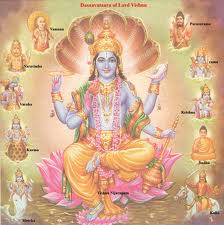| 21 Property Rights | |
According to Agni Purana, the property of a dead father has to be shared by sons and his widow in equal shares. Unlike in the Modern Law, daughters have no share, but the sons of unmarried daughters have to jointly share the expenses of the marriages to the extent of one-fourth of each son’s inheritance (including the carry forward debts made by the dead person in respect of the daughters already married). If the dead person has no issues, the person who enjoys the inheritance would also bear the duty of repaying debts made by the dead man. But, the widow would not have to share the burden of debts from her share of property. A woman is not responsible for debts incurred by husband or son, and so is the case of a man’s responsibility to his wife’s or son’s debts, unless they make a joint loan deed. Incase of disputes in general, if the witness provided is proved false, the punishment to the false witness would attract eight times the punishment given to the false claimant. If a Brahman gives the false witness or false claim, the punishment is banishment from the Kingdom. Whenever there is no written contract of a loan, excepting in the presence of witness, the latter has to swear by fire or water. In case of fire, the witness keeps seven dry leaves on his head and a red hot metal piece in his palm; if the hot metal on his palm does not hurt, then the claim as supported by the witness is true! In case of an oath by water, the witness would not drown if the claimant is right! | |
 Prev:Kingship Duties and Rama Rajya Prev:Kingship Duties and Rama Rajya | |

 Next:Kingship Duties and Rama Rajya
Next:Kingship Duties and Rama Rajya